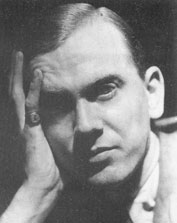It’s 1948. Postwar Vienna is suffering shortages of everything, including medicine. It is administered by a cooperative security force comprised of British, French, American, and Russian soldiers. In a unique arrangement, a representative of each country takes part in each routine patrol, even if they can’t speak each others’ language.
The city is in ruins. The people, demoralized, desperate.
Holly Martins is an American writer of pulp westerns. He gets a message from an old school chum, Harry Lime, to come visit him in Vienna. Sounds like an adventure– old times! But he arrives just ten minutes after Lime’s body has been carted away to be buried, after a car accident. Instead of a happy reunion, he attends a somber funeral, along with a very small number of Lime’s friends. And a young woman, Anna, who walks away quickly when the service is over.
Martins is clearly already infatuated with her and later catches up with her at the theatre where she performs in sad, dispirited, period comedies. Perhaps the most depressing moment of the film– the actresses, in sumptuous costumes, smiling and cavorting on stage, in some pathetic effort to recapture something magical from a hopelessly distant past– and the audience half-heartedly laughing.
After the play, she offers him a cup of tea, but it is clear that she is in no mood for sentimental reminiscences.
MARTINS
You were in love with him, weren’t you?
ANNA
I don’t know. How can you know a
thing like that afterwards? I don’t
know anything any more.
Well, damn right it’s written by Graham Greene. Martin’s line is freighted with a misguided nostalgia for Lime (we come to understand, even if Martins doesn’t, that Lime used him) and Anna’s line is freighted with bitter disillusionment.
Holly is one of the earliest incarnations of George W. Bush, blundering into complex situations which he can’t remotely understand but determined, nonetheless, to do something about them, and, in the process, causing mayhem and suffering to all those around him. He’s the ugly American, the bumbling fool who thinks his native wit will triumph over sophistication and cunning.
This is not a coincidence. It is a known theme of Graham Greene’s: how the naïve but well-meaning Americans sew disaster around the world.
Anna wants nothing to do with him. She just wants time to go by. She’s filled with fatalism, resignation, and emotional fatigue.
You begin to understand how war saps away hope and passion. And you begin to understand the complex, disturbing attraction of Lime. And it is a wonderful tribute to Greene that he resists the temptation to imbue Anna with some kind of special nobility: it is clear she doesn’t care about the victims of Lime’s black market activities– she only wants him back. Because he was the only thing in her bleak life that made her laugh.
You don’t even get to anesthetize yourself with this illusory “true love”– she doesn’t know. She doesn’t know how you would even know something like that “afterwards”
[spoiler] Then there is the astonishing last scene. The camera stands distant, at the end of a long laneway leading away from the cemetery. Martins, the fool, prevails upon Major Calloway to let him off. Calloway, reluctantly, stops the jeep and lets him out. He stands there waiting for Anna to catch up to him. The camera watches impassively as Anna slowly approaches Martins… then walks right past him as if he doesn’t even exist.
Martins doesn’t move.
We fully understand that he is being forced into a tremendously painful realization, and all he can do is stand there and watch her walk away.
Graham Greene, who was no stranger to Hollywood movies, thought the original ending of “The Third Man” was too bleak for most audiences and wanted to change it….
Well, no– it wasn’t the “original” ending: [spoiler] in the novella he wrote as a first draft, he actually had Anna walk off, after Lime’s funeral, with Martins. [end of spoiler] It was director Carol Reed and–shockingly– the producer, David O. Selznick– yes, the American Hollywood producer– who insisted there should be no compromise, because it was “right”, artistically, because it was inevitable, because the romantic ending would have been completely contrary to the spirit of the story.
It is very hard to imagine otherwise. It was an uncharacteristically cheesy idea of Greene’s, and a brilliant realization by Reed and Selznick. And I am convinced it is one of the main reasons “The Third Man” is regarded so highly more than fifty years after it was made. The romantic ending might have provided a moment of transient gratification– but it would have trivialized the rest of the film.
Considering all the indignities Hollywood has rendered upon good stories over the years, that is amazing.
I can’t stand it when a movie like “The Reader” comes along acting as if it was something like “The Third Man”. Watch the two one after the other: what’s different? The world. But mainly the writing. The difference is that there is not a single moment in “The Reader” that is even a shadow of the “how do you know a thing like that afterwards” or the cuckoo clock, or “Victims? Don’t be melodramatic. ”
If someone were to do a remake of “The Third Man”– a terrible idea, of course– you could do worse than…
Holly Martins: Steve Carell
Harry Lime: Phillip Seymour Hoffman — without a doubt.
Anna: Taryn Manning, or maybe Amy Adams, if she ever decides to take on a challenging role, instead of those lightweight confections she’s been indulging in lately.
Or how about Kelly MacDonald? I don’t know. Yes– absolutely Kelly MacDonald, with Franke Potente as a close second.

